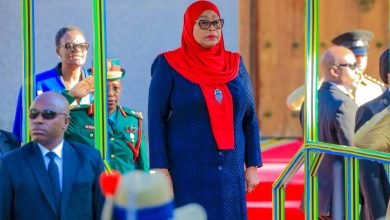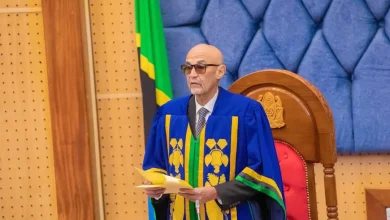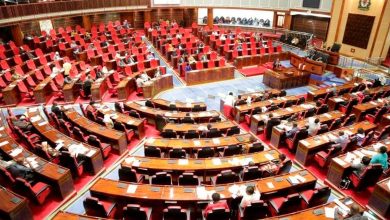CUF’s manifesto makeover: What it means for Tanzanians

THE Civic United Front (CUF) 2025–2030 manifesto marks a decisive shift from its 2020–2025 version, signalling the party’s growing maturity in governance philosophy, policy formulation and strategic communication.
The new document transitions from broad ambitions to more practical, detailed and implementable policies that respond to the changing realities of Tanzanian society.
While the earlier manifesto set out sweeping goals around governance reform, poverty reduction, food security, education and healthcare, the 2025–2030 version deepens these commitments with sharper focus on social equity, economic resilience, institutional accountability and realistic timelines.
It reflects CUF’s determination to refine its strategies, respond to emerging challenges and present itself as a credible alternative government ready to lead Tanzania into a more inclusive and sustainable future.
One of the most profound areas of evolution in the new manifesto is CUF’s vision for governance and democracy. In its 2020–2025 document, CUF focused heavily on institutional reforms calling for the creation of stronger governance systems, the establishment of a Government of National Unity (GNU) and constitutional reform to guarantee separation of powers, enhance press freedom and protect civil liberties.
The 2025–2030 manifesto retains these principles but goes further, shifting from advocacy to consolidation. It seeks to lock in durable democratic safeguards that cannot be easily dismantled by political elites.
CUF envisions a future in which checks and balances are not dependent on goodwill but guaranteed by law, with institutions strong enough to outlive individual leaders.
This marks a crucial transformation from a manifesto that once appealed to ideals, to one rooted in enforceable systems and measurable reforms. The tone is more assertive and confident, suggesting that CUF now sees itself as ready to govern, not merely to oppose.
On poverty eradication, CUF’s new manifesto introduces one of its boldest ideas yet the basic income pilot programme. While the 2020–2025 manifesto largely treated poverty as a statistical problem, citing figures such as the 27 million Tanzanians living in poverty and 74 per cent of children facing multidimensional deprivation, the 2025–2030 manifesto reframes it as a social justice issue.
The proposed basic income programme seeks to provide a guaranteed minimum income for vulnerable Tanzanians to cover food, healthcare, and shelter. This approach aims to empower families rather than merely assist them, aligning with global trends in social protection that focus on dignity and self-sufficiency.
Food security and nutrition remain central pillars in both manifestos, but the emphasis has evolved. In the 2020–2025 version, CUF’s goal was to ensure every citizen had access to three meals a day, particularly prioritising expectant mothers and children.
The 2025–2030 manifesto maintains this commitment but expands it into a broader conversation about sustainable nutrition systems, agricultural resilience and local capacity building.
Healthcare reform provides another area of noteworthy progression. In 2020, CUF promised to allocate 15 per cent of the national budget to the health sector within 10 years, expand health insurance coverage to 70 per cent of the population by 2025 and achieve universal coverage by 2028. The new manifesto retains the 15 per cent target but shortens the timeframe to five years, signalling a greater sense of urgency.
However, CUF also adjusts its universal health insurance target to 2035—an acknowledgment of fiscal and logistical realities. Rather than reducing ambition, this recalibration demonstrates maturity and pragmatism, showing that CUF has learned from experience and is setting achievable milestones.
Importantly, the promise of free maternal health services remains intact, underscoring CUF’s continued focus on reducing maternal and child mortality.
The 2025–2030 manifesto also redefines CUF’s approach to social protection, integrating various welfare measures into a single comprehensive framework.
For instance, while the 2020–2025 manifesto proposed a dedicated pension for senior citizens, the new manifesto embeds elderly care within the broader basic income model, ensuring inclusivity across different vulnerable groups such as persons with disabilities, single mothers and the extreme poor.
Persons with disabilities continue to occupy a central place in CUF’s policy framework. Both manifestos promise dedicated funds for education, healthcare and employment support, but the newer document advances the discussion by emphasising inclusive participation.
Instead of viewing people with disabilities merely as beneficiaries, CUF now recognises them as key stakeholders in policymaking. The new manifesto commits to ensuring their representation in local and national decision-making bodies, marking a powerful step towards genuine inclusivity.
Education policy has also undergone significant refinement. The 2020–2025 manifesto’s ambitious plan for universal access to quality education— emphasising science, mathematics and ICT—remains central.
However, the 2025–2030 version extends the ICT implementation targets to 2030 for half of all public schools and 2035 for full national coverage, making the timeline more achievable.
What stands out most is the new manifesto’s attention to gender-sensitive education reforms. CUF introduces a groundbreaking initiative to provide free sanitary pads to schoolgirls, directly addressing menstrual poverty—a key cause of school dropouts.
Moreover, girls’ education is now contextualised within a wider framework of social support, linking it with healthcare, community sensitisation and economic empowerment programmes.
The economic pillar of the CUF manifesto remains as ambitious as ever but demonstrates a more structured, interconnected approach. While the 2020– 2025 version projected annual GDP growth of 8–10 per cent, the 2025–2030 manifesto raises the target to 10 per cent, linking it explicitly to the Sustainable Development Goals (SDGs).
Agriculture continues to be recognised as the backbone of Tanzania’s economy, but the new manifesto takes the discussion a step further by integrating agro-industrial development, value addition and technological innovation. CUF pledges to allocate between 10 and 15 per cent of the national budget to agriculture while simultaneously investing in infrastructure, research, irrigation and transport networks.
This holistic approach acknowledges that agricultural transformation cannot occur in isolation, it requires supporting systems in energy, logistics and markets.
The new manifesto also elevates infrastructure development as a key driver of national growth. While the 2020–2025 document acknowledged infrastructure as a supportive element, the 2025–2030 manifesto makes it a central pillar, promising massive investments in roads, railways, ports, communication networks, energy grids and water supply systems. The aim is to create an enabling environment for business, boost productivity and link rural economies with urban markets.
A notable improvement in the 2025–2030 manifesto lies in fiscal discipline and public resource management. The 2020– 2025 version highlighted corruption and mismanagement as obstacles to progress but lacked concrete measures.
The new document fills this gap with detailed prescriptions, including the elimination of arbitrary tax exemptions, closing of tax evasion loopholes and reforming the tax structure to make it simpler, fairer and more transparent.
CUF also commits to strengthening the role of the Controller and Auditor General (CAG), increasing parliamentary oversight on public spending and ensuring citizens have access to fiscal information.
The manifesto introduces a proposal for a Public Accountability and Transparency Bill, aimed at making all major government contracts and budgets publicly accessible online.
In the energy and environment sectors, the manifesto demonstrates continuity and innovation. It reaffirms CUF’s support for renewable energy investment—particularly solar, wind and hydropower—as part of the broader goal of achieving energy security while mitigating climate change.
The new manifesto also pledges to enforce stricter environmental regulations and promote sustainable urban development through eco-friendly public transport systems and green housing projects.
On foreign policy and regional cooperation, CUF’s 2025–2030 manifesto presents a more assertive stance. It promises to strengthen Tanzania’s leadership role within the East African Community (EAC), SADC and the African Union (AU), promoting trade integration, regional peace and collective security. The manifesto also outlines a strategy to attract foreign direct investment through policy stability, transparency and regional market access.
Overall, a comparison between the two manifestos reveals a political party that is evolving with clarity, maturity and foresight. The 2020–2025 document laid the ideological foundation, defining CUF’s identity as a party of reform, inclusion and justice.
The 2025–2030 manifesto builds upon that foundation refining its priorities with stronger implementation mechanisms, realistic timelines and a focus on measurable outcomes.
In essence, CUF’s new manifesto presents not just promises but pathways. It portrays a vision of a Tanzania where equity meets opportunity, where governance is accountable and where social justice is embedded in every policy decision. With this manifesto, CUF signals that it is no longer just participating in the democratic conversation—it is preparing to lead it





